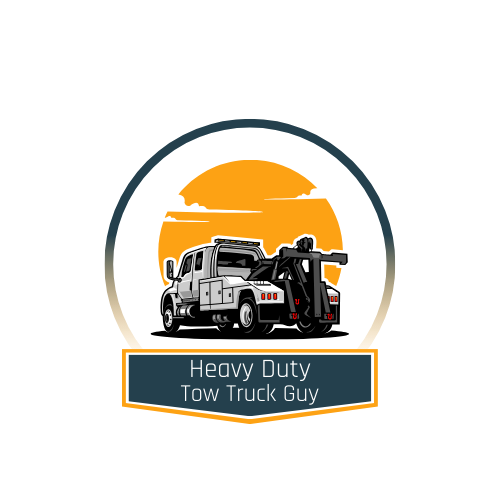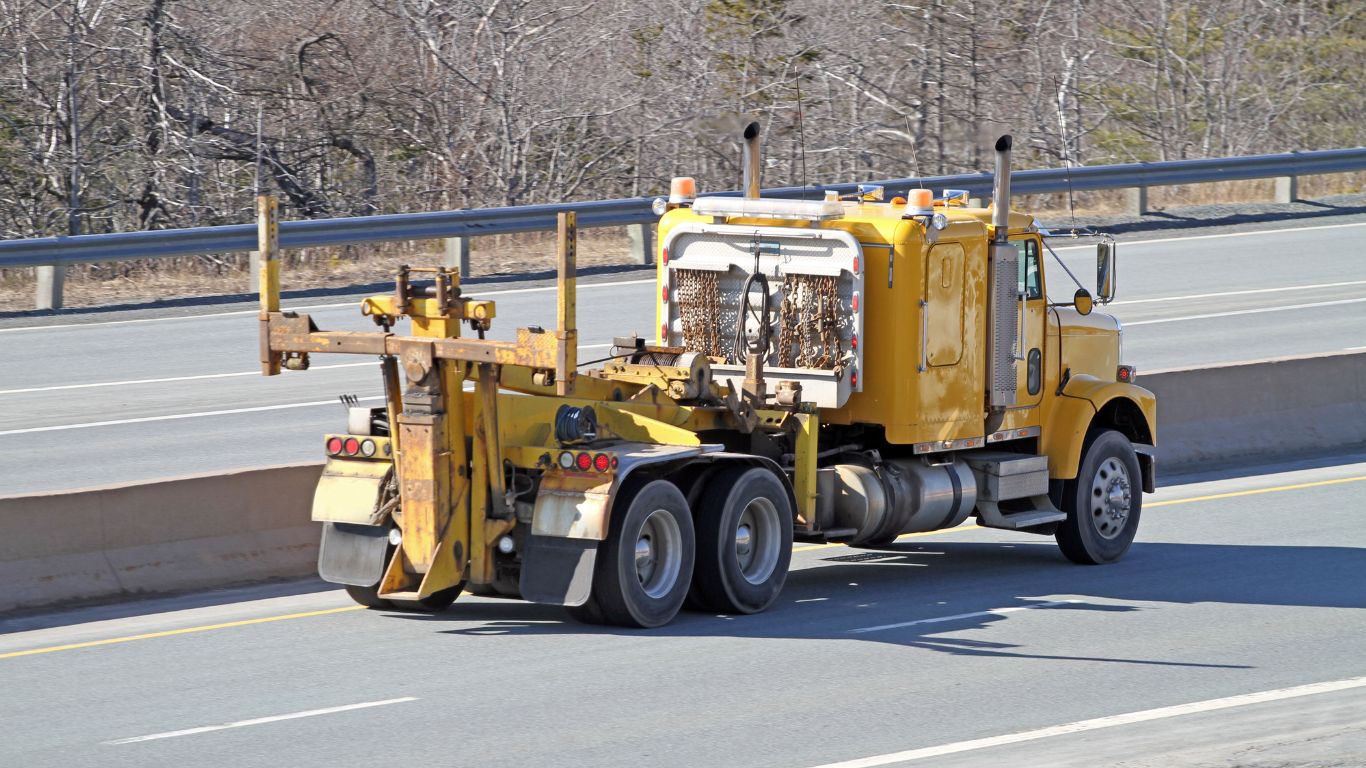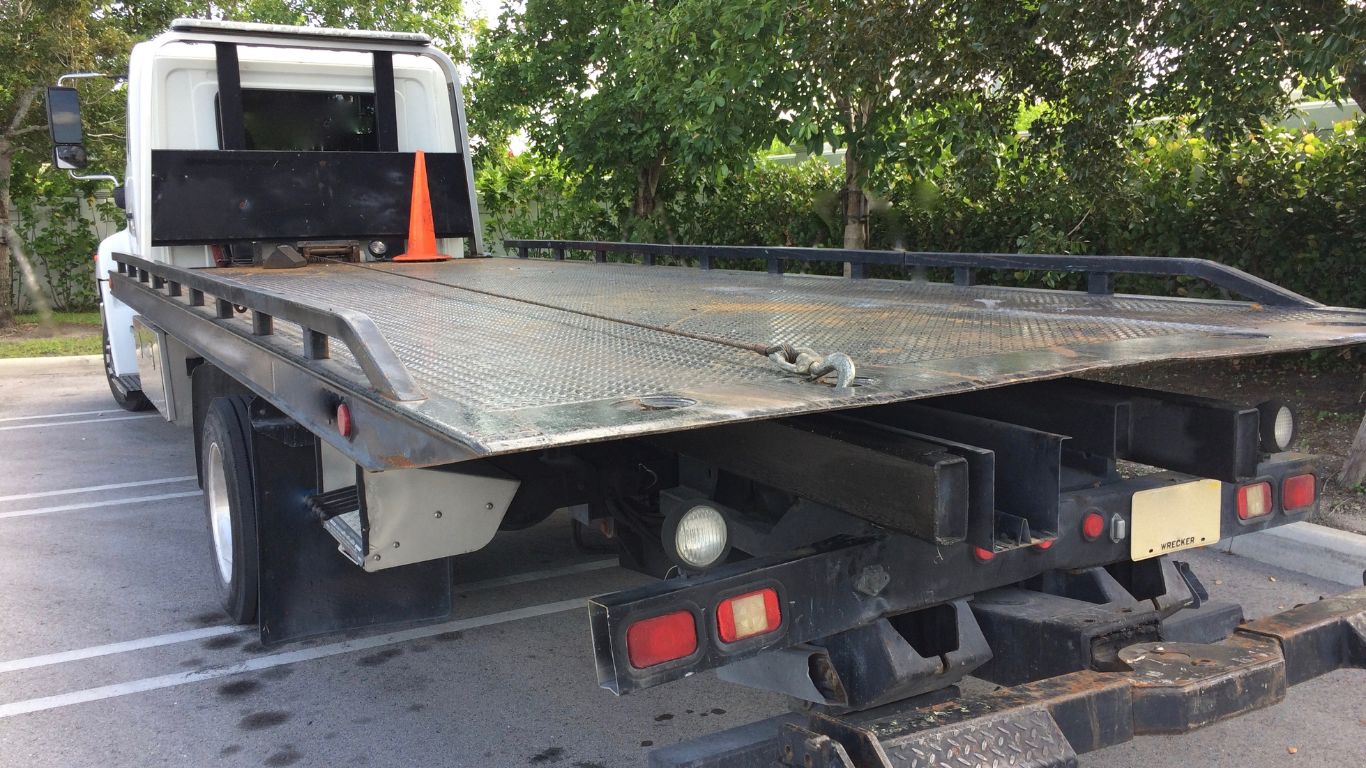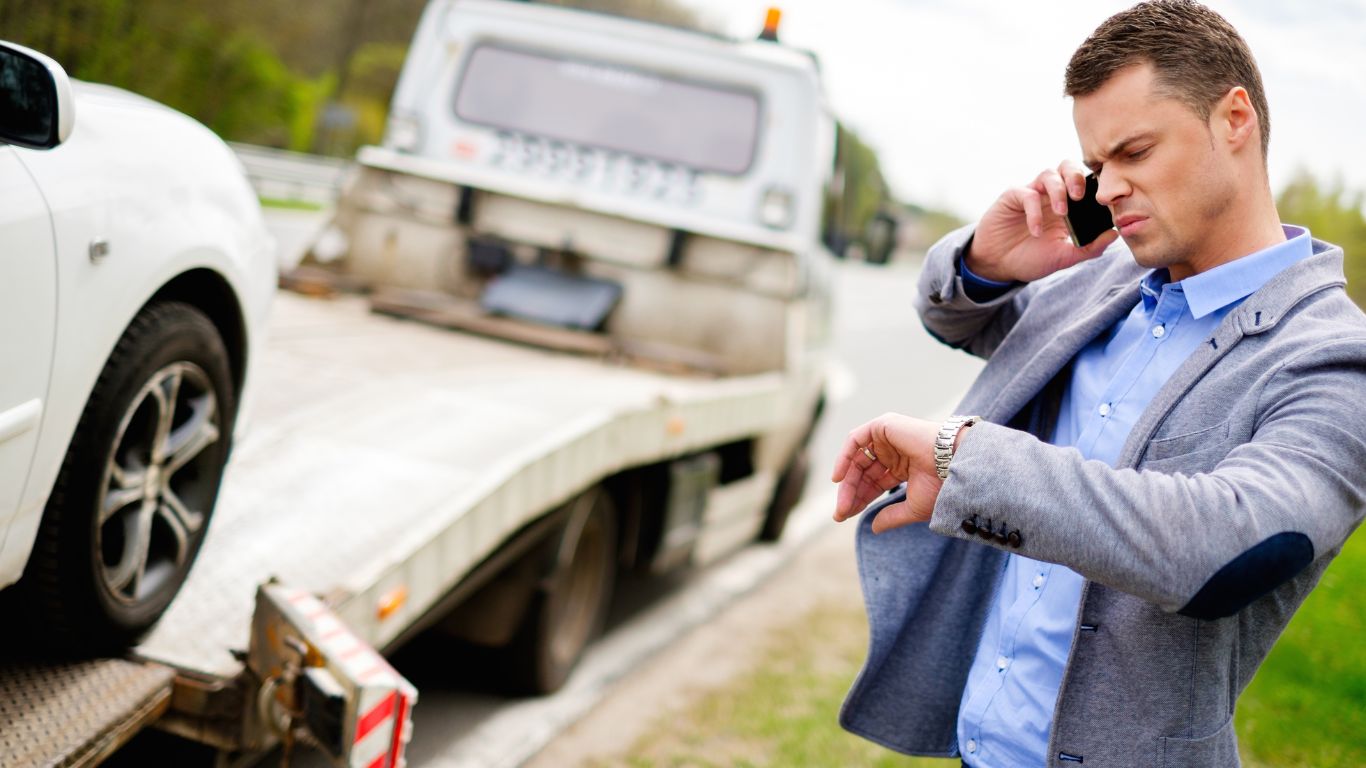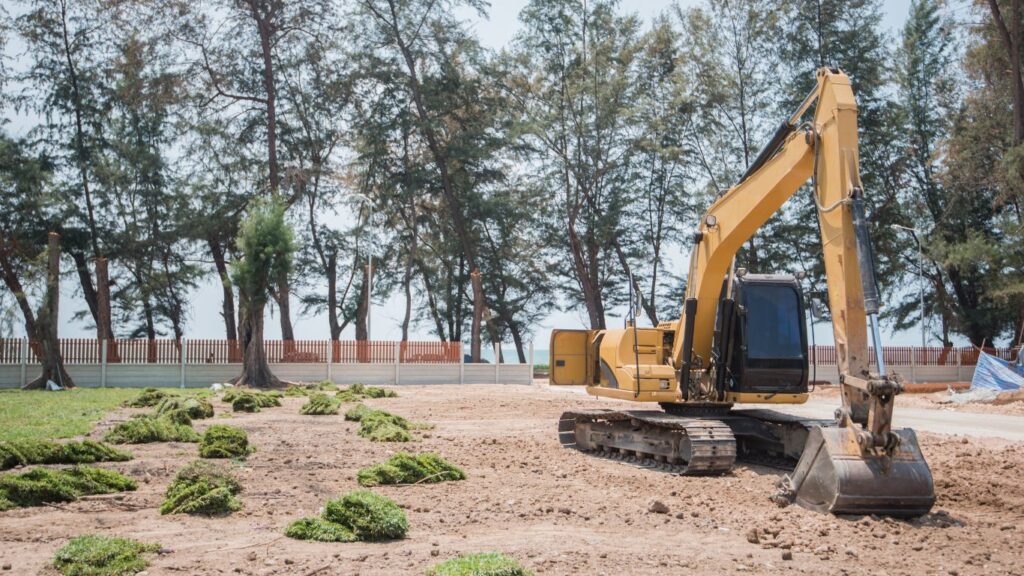
Construction equipment towing can be a challenge even for the most experienced drivers. The process requires a lot of preparation, specialized equipment, and an understanding of the legal requirements involved. In this blog, we will cover all the essential tips you need to know before towing heavy construction equipment. We’ll start by discussing the basics of construction equipment towing and what makes it so challenging. Then, we’ll dive into the precautions you should take before towing heavy equipment and the safer practices to follow during the process. You’ll also learn about the essential equipment required for safe and efficient towing and how to select the right vehicle for your needs. Finally, we’ll talk about expert handling of unexpected situations during towing, why regular maintenance is crucial, and why professional assistance is always recommended when it comes to construction equipment towing.
Understanding the Basics of Construction Equipment Towing
Proper understanding of construction equipment towing is essential for safe and efficient transport. Navigating the challenges and complexities of towing heavy machinery requires knowledge about logistics and the specifics of heavy-duty equipment. Ensuring successful delivery involves expertise in handling different types of equipment such as tractors, bulldozers, and excavators. Professional towing companies with state-of-the-art fleets of tow trucks and wreckers, like WreckMaster, offer heavy-duty towing services. Their friendly dispatchers and efficient service ensure a smooth towing experience. Cargo load shifts and the need for load shifts are common in the construction industry, making expertise in handling heavy loads crucial. With their impressive fleet and expertise, towing companies play a vital role in the construction equipment transport process.
What Makes Construction Equipment Towing Challenging?
Construction equipment towing presents several challenges. It involves dealing with heavy loads, managing weight distribution and balance, handling complex machinery, maneuvering through obstacles and tight spaces, and adapting to different terrains and weather conditions. These factors make construction equipment towing a challenging task.
Precautions to Take Before Towing Heavy Equipment
Before towing heavy equipment, it is crucial to take certain precautions to ensure a safe and successful operation. Conducting thorough inspections of both the equipment being towed and the towing vehicle is essential. This includes checking for any loose components and ensuring proper fastening. It is also important to inspect the brakes, lights, and other safety features of the towing vehicle to ensure they are in proper working condition. Planning the route in advance and anticipating potential hazards can help avoid any unexpected issues during the towing process. Effective communication with team members and coordinating logistics is also essential for a smooth operation. By taking these precautions, you can minimize the risks associated with construction equipment towing.
Are there Specific Legal Requirements for Towing Heavy Equipment?
Understanding the legal requirements for towing heavy equipment is crucial. Familiarize yourself with local and state regulations, obtain necessary permits, and adhere to weight restrictions. Ensure compliance with safety guidelines and transportation laws, while also maintaining proper documentation.
Safer Towing Practices for Heavy Construction Equipment
Safer towing practices are essential when dealing with heavy construction equipment. By using appropriate techniques and equipment, you can ensure a secure towing process. It is crucial to maintain safe speeds and follow recommended routes to minimize risks. Implementing proper signaling and communication methods is also necessary to ensure the safety of everyone involved. Regularly inspecting and maintaining towing equipment helps prevent any potential issues during the towing operation. Above all, prioritizing safety and taking measures to minimize risks should be the top priority in every towing operation.
Essential Equipment for Safe and Efficient Towing
Selecting the right towing vehicle for heavy equipment is crucial in ensuring safe and efficient towing. Utilizing specialized trailers and flatbeds designed for heavy machinery transport is recommended to minimize the risk of damage during transit. Equipping the towing vehicle with winches, straps, and chains provides secure towing, preventing any potential accidents or equipment slippage. Incorporating load transfer services and load swap options can optimize the efficiency of towing operations, especially when dealing with oversized or overweight loads. Investing in reliable and high-quality towing equipment, such as heavy-duty tow trucks and state-of-the-art fleet of wreckers and rotators, ensures that the towing needs of the construction industry are met efficiently and effectively.
Selecting the Right Towing Vehicle for Heavy Equipment
When selecting a towing vehicle for heavy equipment, it is essential to determine the weight of the equipment and choose a vehicle with sufficient towing capacity. Consider checking the suspension and brakes of the towing vehicle to ensure they can handle the weight effectively. Additionally, it is crucial to select a trailer that has the appropriate size and weight rating for the equipment being towed. To guarantee safe transportation, use proper tie-downs and safety chains to secure the equipment in place. Lastly, make sure to follow all local regulations and obtain necessary permits for oversized loads. By following these tips, you can select the right towing vehicle for heavy equipment without any hassle.
Expert Handling of Unexpected Situations During Towing
In the world of construction equipment towing, unexpected situations can arise at any moment. It’s essential to be prepared and skilled in addressing emergencies and unforeseen challenges that may occur during towing operations. Expert handlers understand the importance of implementing proper protocols for breakdowns or accidents, adapting to changes in weather conditions and road closures, and coordinating with emergency services and law enforcement if needed. They maintain composure and make informed decisions on-site, ensuring the safety of everyone involved. With their knowledge and experience, towing companies with a heavy-duty and impressive fleet of tow trucks, wreckers, and rotators are equipped to handle any situation efficiently and provide the best service possible, making them invaluable in the construction industry.
Importance of Regular Maintenance for Towing Equipment
Regular maintenance is essential for the safe and efficient towing of construction equipment. By conducting regular inspections and addressing any potential issues, you can ensure the safety of the towing equipment, the vehicle used for towing, and other motorists on the road. This proactive approach helps prevent breakdowns and costly repairs, which can result in project delays and downtime. Additionally, proper maintenance extends the lifespan of towing equipment and enhances its resale value. Neglecting maintenance can have serious consequences, including accidents, injuries, and legal liabilities. Therefore, it is crucial to prioritize regular maintenance to keep your towing equipment in optimal condition and ensure smooth operations in the construction industry.
Why Professional Assistance is Crucial in Construction Equipment Towing?
Professional assistance is essential for construction equipment towing due to the specialized knowledge and equipment required. Professionals have permits, insurance, and safety measures in place to ensure a successful tow. Improper towing can cause damage and put individuals at risk. Hiring professionals saves time and money by preventing accidents or equipment damage.
Conclusion
In conclusion, towing heavy construction equipment requires careful planning and adherence to safety precautions. It is essential to understand the challenges involved and take necessary measures to ensure a safe and efficient towing process. This includes thorough inspections, selecting the appropriate towing vehicle, and regularly maintaining the towing equipment. While it is possible to tow heavy equipment on your own, seeking professional assistance can significantly reduce risks and ensure a smooth towing experience. So, if you have any construction equipment that needs to be towed, don’t hesitate to reach out to our team of experts who specialize in construction equipment towing.
